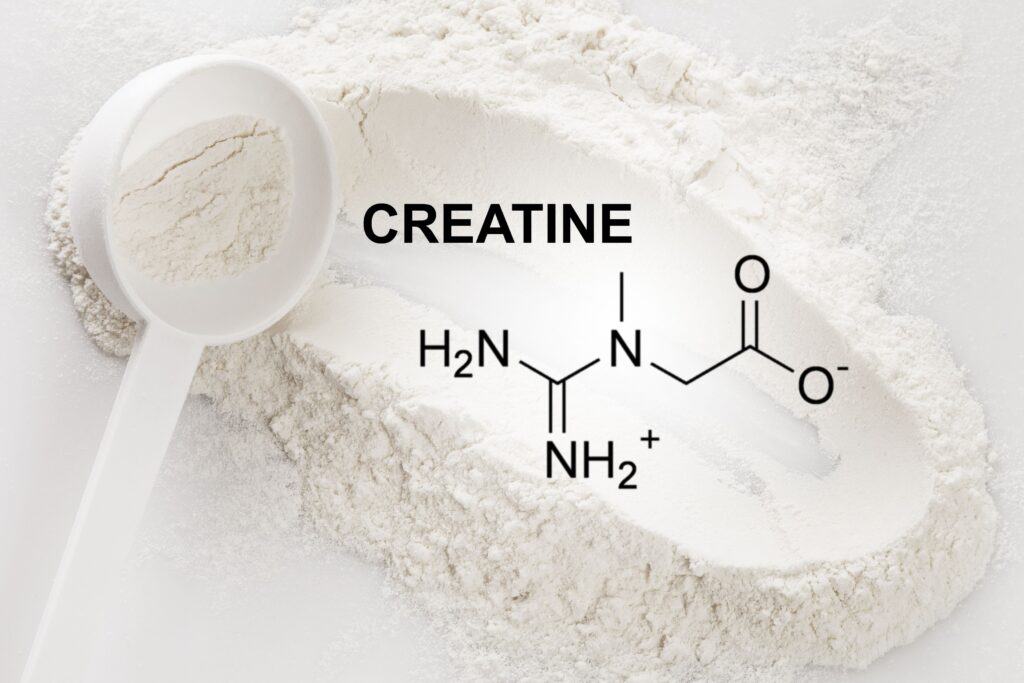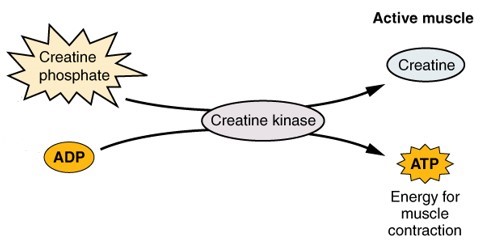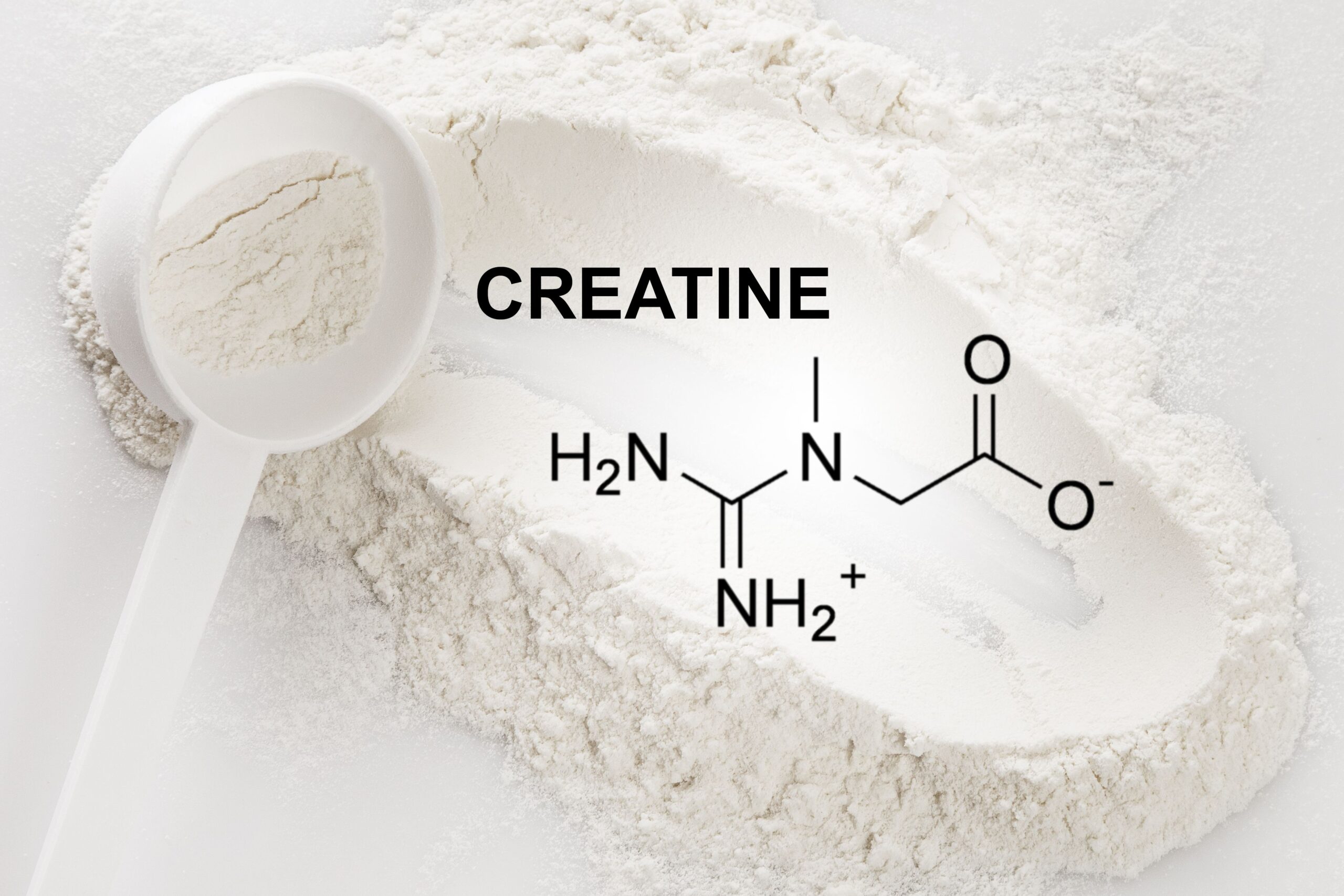Is creatine worth the hype?
Creatine is one of the most researched and effective supplements on the market, known for its benefits in enhancing performance and muscle mass, especially when paired with resistance training. But did you know creatine can also benefit endurance athletes? In this blog post, we’ll explore how creatine works, its benefits for endurance sports, and how to incorporate it into your regimen.
What is Creatine?
Creatine is a naturally occurring compound in the body, synthesized primarily by the liver, pancreas, and kidneys. It’s also found in dietary sources such as meat and fish. On average, a person consumes about 1 gram of creatine per day through their diet. The body stores creatine mainly in the muscles, where it plays a crucial role in producing energy during high-intensity activities.

How Does Creatine Work?
Creatine’s primary role is to help produce adenosine triphosphate (ATP), the energy currency of cells. During intense exercise, ATP is rapidly broken down to fuel muscle contractions. Creatine donates a phosphate group to adenosine diphosphate (ADP) to regenerate ATP, providing a quick energy source for high-intensity efforts. This process enhances energy availability, which can improve strength, power output, and overall athletic performance.

Benefits of Creatine for Endurance Athletes
While creatine is often associated with anaerobic activities like weightlifting and sprinting, it also offers several benefits for endurance athletes:
- Improved Performance: By increasing the availability of ATP, creatine can help endurance athletes perform better during high-intensity intervals, such as sprints or hill climbs, within their training or competition.
- Enhanced Recovery: Creatine supplementation has been shown to reduce muscle damage and inflammation, which can speed up recovery times between intense training sessions.
- Increased Muscle Mass: Endurance athletes can benefit from the muscle-building properties of creatine, as increased muscle mass can contribute to improved endurance performance and overall strength.
- Cognitive Benefits: Emerging research suggests that creatine may enhance cognitive function, including improved focus, reduced mental fatigue, and better working memory, which can be beneficial during long, demanding endurance events.
How to Take Creatine as an Endurance Athlete
For optimal results, the recommended dosage of creatine is 3-5 grams per day. This dosage helps saturate muscle stores and maintain elevated creatine levels. Here’s a simple guide to incorporating creatine into your routine:
- Loading Phase (Optional): Start with 20 grams per day (divided into 4 doses) for 5-7 days to quickly saturate muscle creatine stores. This phase is optional but can speed up the process.
- Note: the loading phase is optional, you will saturate you creatine stores in 3-4 weeks starting with the maintenance phase. Due to a lower dose, this can commonly reduce the impact of stomach issues that may arise with taking a 20g dose of creatine.
- Maintenance Phase: Follow the loading phase with a maintenance dose of 3-5 grams per day. This dose can be taken at any time of the day, with or without food.
- Hydration: Ensure you stay well-hydrated, as creatine increases water retention in the muscles.
Choosing the Right Creatine Supplement
The most researched and cost-effective form of creatine is creatine monohydrate. It’s widely available, affordable, and has a well-established safety profile. When selecting a supplement, look for products that are free from additives and fillers. Vegetarians and vegans should ensure their supplement does not contain gelatin or other animal-derived ingredients.
Potential Side Effects of Creatine
Creatine is generally safe for most people when taken within recommended dosages. Some individuals may experience mild gastrointestinal discomfort, such as bloating or diarrhea, especially during the loading phase. If this occurs, try splitting the dose into smaller amounts taken throughout the day.
I will highlight, that there has been 1 report of creatine-increasing manic episodes in patients with bipolar disorder (1) and there is large anecdotal evidence of increasing irritability in those with ADHD taking medication (specifically Vyvanse). While there is limited evidence, if you have a mental disorder, please consult with your physician or psychiatrist before taking creatine.
Final Thoughts on Creatine for Endurance Athletes
Creatine is a powerful supplement with numerous benefits for endurance athletes. From improving performance and enhancing recovery to supporting muscle growth and cognitive function, creatine can be a valuable addition to your training regimen. As always, consult with a healthcare professional before starting any new supplement to ensure it aligns with your individual health and performance goals.
If you have any questions or need personalized advice on using creatine, feel free to reach out. Whether you’re an endurance athlete looking to gain an edge or simply interested in the benefits of creatine, I’m here to help!
Take-Aways
Incorporating creatine into your supplement routine can offer significant performance and recovery benefits for endurance athletes. By understanding how creatine works and following proper dosing guidelines, you can maximize its potential to boost your athletic performance and overall fitness.
If you are interested in taking creatine, please ensure you are taking third-party tested supplements (you can learn more about that here). You can purchase a third-party testing creatine supplement with 30% off using this link to Fullscript.
References
- Feier G, Valvassori SS, Rezin GT, Búrigo M, Streck EL, Kapczinski F, Quevedo J. Creatine kinase levels in patients with bipolar disorder: depressive, manic, and euthymic phases. Braz J Psychiatry. 2011 Jun;33(2):171-5. doi: 10.1590/s1516-44462011005000005. PMID: 21829911.
- Kaviani M, Shaw K, Chilibeck PD. Benefits of Creatine Supplementation for Vegetarians Compared to Omnivorous Athletes: A Systematic Review. Int J Environ Res Public Health. 2020;17(9):3041. Published 2020 Apr 27. doi:10.3390/ijerph17093041
- Kreider RB, Stout JR. Creatine in Health and Disease. Nutrients. 2021;13(2):447. Published 2021 Jan 29. doi:10.3390/nu13020447
- Creatine. Examine. 2023. https://examine.com/supplements/creatine/
